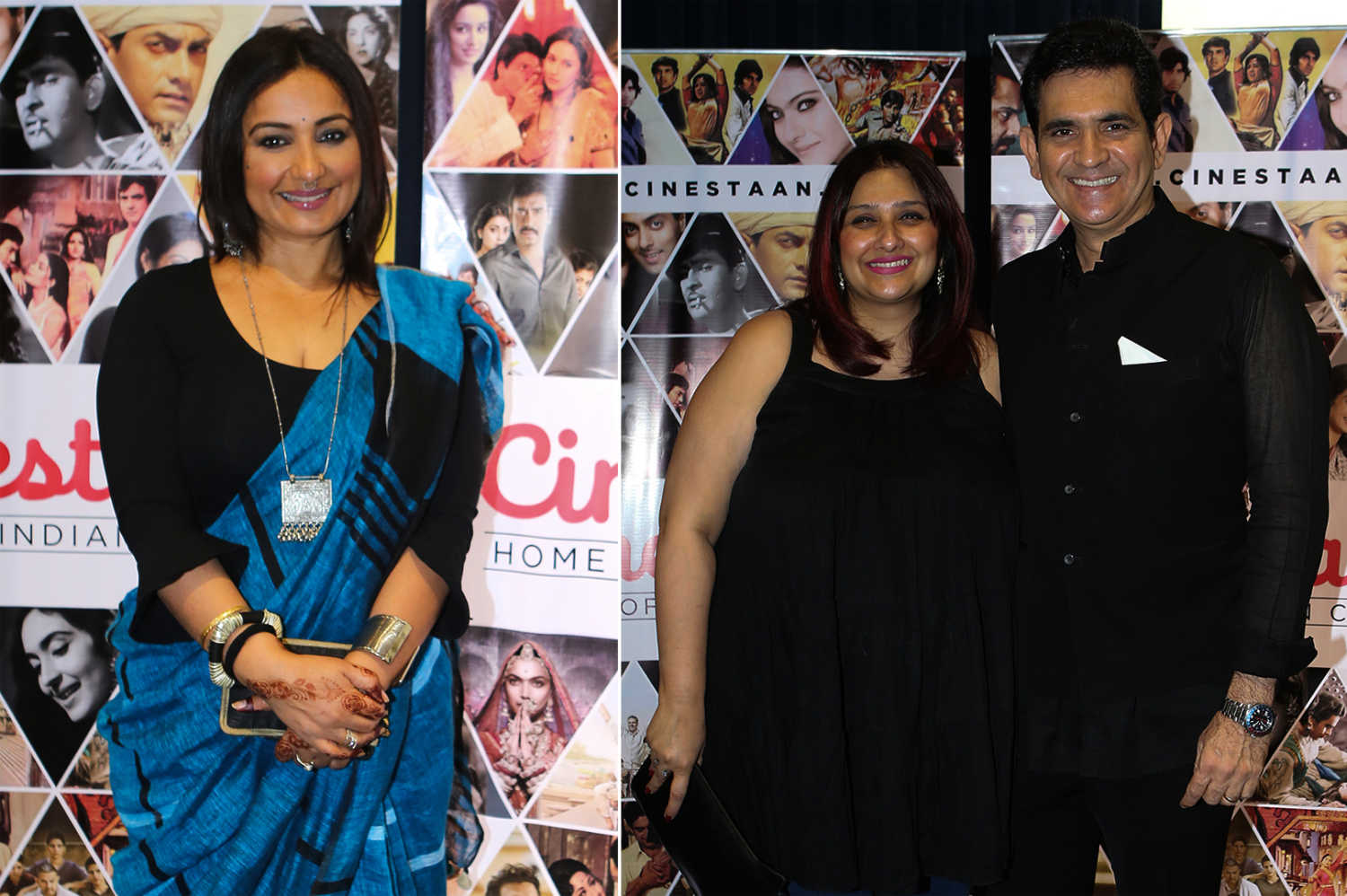The actress and the filmmaker commented separately about the evolving tastes of the Indian audience at the Oxfam ‘Women In Film’ brunch on 28 October 2018.
Film audiences have graduated: Divya Dutta, Omung Kumar at Oxfam ‘Women In Film’ brunch
Mumbai - 31 Oct 2018 18:00 IST


Sonal Pandya
The recent success of films like Andhadhun (2018) and Badhaai Ho (2018), coincidentally both of which star actor Ayushmann Khurrana, has proven that the audiences are ready to embrace new kinds of stories. Sriram Raghavan’s Andhadhun is the story of a blind piano player who gets embroiled in a murder and Amit Sharma’s Badhaai Ho explores a middle-class family that deals with a middle-age pregnancy.
The Oxfam ‘Women In Film’ brunch, held at the JW Marriott, celebrated the films nominated for the Best Film For Gender Equality. The eight films are being screened at this year’s 20th Mumbai Film Festival.
Actress Divya Dutta, who attended the brunch, spoke to us about the award’s theme of ‘Cinema Beyond Stereotypes’.
“I think it’s a great initiative to take cinema beyond the stereotypes because this is something we are really fighting against. We get very comfortable in those as well. Be it in front of camera or off camera, I think all the women together, and the men who are supporting them, are at it to bring newer stuff and I think the audience is as well ready for both,” she stated.
She mentioned both Badhaai Ho and Andhadhun as examples for the audience’s growing taste.
“You have a Badhaai Ho where you have an elder couple having a romantic track and where would you ever think of it earlier,” she pointed out. “So that’s a stereotype broken, [earlier they] would say, kya inko dikha rahe hai [why are they showing them?]. Look at Andhadhun which is an absolutely different kind of a film and story. [You have] a character is not your typical stereotypical heroine singing songs. You have a woman who is a grey [character], putting over her own interests and is unapologetic [about it]. So it’s so heartening that people are loving it, and not judging it, which is awesome.”
Filmmaker Omung Kumar, who also attended the event with his wife, Vanita, echoed Dutta’s statement of a changing audience. He feels Hindi cinema has evolved into real films and real stories. He had made a woman-oriented film, Mary Kom (2014), but it was a commercial film.
This time around, he stated, “Commercial and real cinema are trying to match this time and all these smaller films are making big waves, so the audience has graduated. Their sensibilities have changed. They are accepting more realism, and looking at themselves. A mirror is shown [to them] through the movies.
“Everyone wanted to do that for a long time, but they were waiting for the audience to change, and vice versa. So that’s how we’ve evolved and we’re looking at new cinema. And it’s time that it started,” he added.
The Oxfam award for Best Film For Gender Equality will be presented on 1 November.
Related topics
MAMI Oxfam Gender Equality Award


